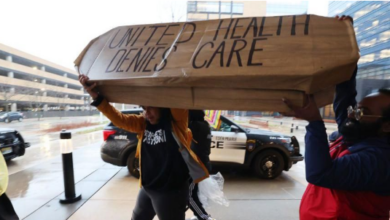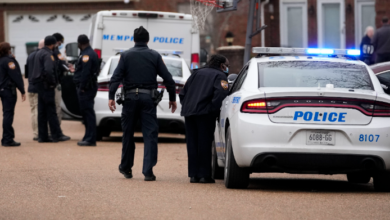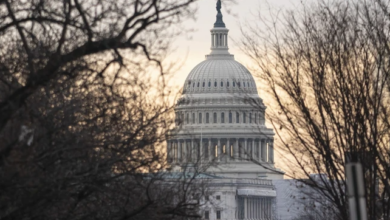Burkina Faso junta urges calm after French Embassy attack

Burkina Faso’s new junta leadership called for an end to the unrest Sunday, a day after angry protesters attacked the French Embassy and other buildings following the West African nation’s second coup this year.
In a statement broadcast on state television, junta spokesman Capt. Kiswendsida Farouk Azaria Sorgho called on people to “desist from any act of violence and vandalism to prevent the efforts made since (Friday) night, especially those that could be perpetrated against the French Embassy or the French military base.”
Saturday’s violence has been condemned by the French Foreign Ministry, which denied any involvement in the events unfolding in Ouagadougou, the capital.

“We condemn in the strongest terms the violence against our diplomatic presence in Burkina Faso,” the French Foreign Ministry said late Saturday. “Any attack on our diplomatic facilities is unacceptable.”
Anti-French sentiment rose sharply after an earlier junta announcement alleged that ousted interim president Lt. Col. Paul Henri Sandaogo Damiba was sheltering at a French military base. France vehemently denied the allegation, but soon protesters with torches thronged the perimeter of the French Embassy in Ouagadougou.
Damiba’s whereabouts were still unknown Sunday though a statement attributed to him was posted on the Burkina Faso presidency’s Facebook page late Saturday. In it, he called on the new coup leaders “to come to their senses to avoid a fratricidal war that Burkina Faso does not need.”
Unlike other ousted West African leaders, Damiba has yet to issue a resignation though the junta said he has been removed from power in their announcement Friday night on state television.
The events unfolding in Burkina Faso have deepened fears that the political chaos will divert attention from the country’s unabated Islamic insurgency, a crisis that has forced 2 million people from their homes and left thousands dead in recent years.
Damiba came to power in January promising to secure the country from jihadi violence. However, the situation only deteriorated as jihadis imposed blockades on towns and have intensified attacks. Last week, at least 11 soldiers were killed and 50 civilians went missing after a supply convoy was attacked by gunmen in Gaskinde commune in the Sahel. The group of officers led by Capt. Ibrahim Traore said Friday that Damiba had failed and was being removed.

Conflict analysts say Damiba was probably too optimistic about what he could achieve in the short term, which raised expectations, but that a change at the top didn’t mean that the country’s security situation would improve.
“The problems are too profound and the crisis is deeply rooted,” said Heni Nsaibia, a senior researcher at the Armed Conflict Location & Event Data Project. “It is hard to imagine that this disunity among the armed forces and the ongoing turmoil will help resolve an already extremely volatile situation.”
He expected that “militant groups will most likely continue to exploit” the country’s political disarray.
As uncertainty prevailed, the international community widely condemned the ouster of Damiba, who himself overthrew the country’s democratically elected president in January.
U.S. State Department spokesman Ned Price said the United States “is deeply concerned by events in Burkina Faso.”
“We call on those responsible to de-escalate the situation, prevent harm to citizens and soldiers, and return to a constitutional order,” he said.
The African Union and the West African region bloc known as ECOWAS also sharply criticized the developments.
“ECOWAS finds this new power grab inappropriate at a time when progress has been made,” the bloc said, citing Damiba’s recent agreement to return to constitutional order by July 2024.
Still, to some in Burkina Faso’s military, Damiba was seen as too cozy with former colonizer France, which maintains a military presence in Africa’s Sahel region to help countries fight Islamic extremists. Some who support the new coup leader, Traore, have called on Burkina Faso’s government to seek Russian support instead.
In neighboring Mali, the coup leader has invited Russian mercenaries from the Wagner Group to help with security, a move than has drawn global condemnation and accusations of human rights abuses.
TheGrio is FREE on your TV via Apple TV, Amazon Fire, Roku, and Android TV. Please download theGrio mobile apps today!
[ad_2]
Source link







